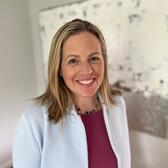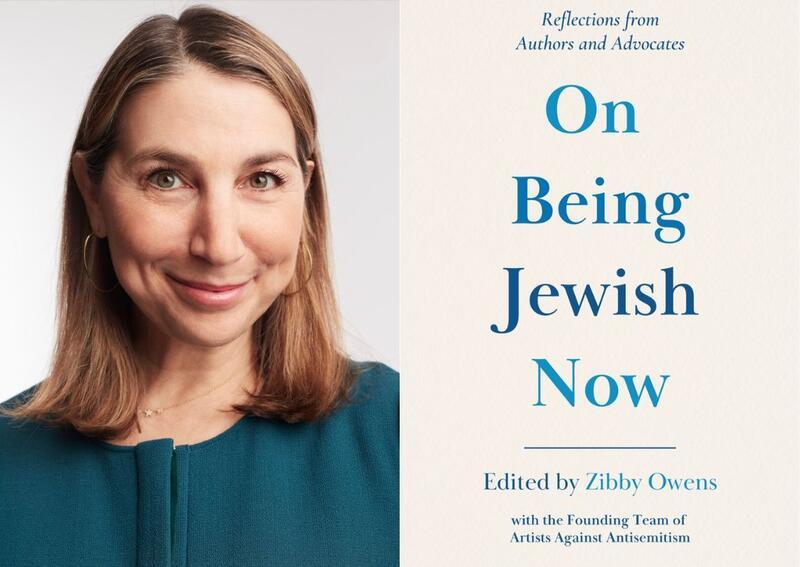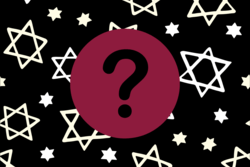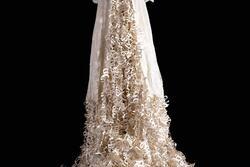"On Being Jewish Now" with Zibby Owens
Zibby Owens finds time. Time to write, time to speak out, and time to take action. Owens has written a memoir (Bookends), a novel (Blank), edited two pandemic anthologies, runs Zibby Media and the publishing company, Zibby Books. She’s interviewed over 2,000 authors for her award-winning podcast, Moms Don’t Have Time to Read Books. In the aftermath of October 7, she made headlines when she publicly withdrew Zibby Media’s sponsorship of the National Book Awards over anticipated pro-Palestinian, anti-Israel agenda speeches. She is a Founding Member of the nonprofit Artists Against Antisemitism, a 501(c)(3) founded by Alison Hammer.
Owens credits the fire for her many endeavors to her deep recognition of the shortness of life, in part learned after the loss of a close friend on 9/11.
While on a writing deadline for her second novel (Overheard, to be released in Fall 2025), Zibby had the spark of an idea for an anthology in response to feeling powerless against the spread of antisemitism. On Being Jewish Now: Reflections from Authors and Advocates released October 1 on eBook and audiobook and will be available in print on November 1.
I spoke with Owens over Zoom:
Jodie Sadowsky: Soon after October 7, you wrote an essay titled "How it Feels to be Jewish Right Now." What inspired you to share your voice then and invite others to do the same through this anthology?
Zibby Owens: Through my podcast, I’ve talked to people from all different backgrounds and races, religions, and sexualities. In their work, many of my guests share how it feels to be part of different identity groups. I thought people might be interested and curious and supportive if they understood how it felt to go through the aftermath of October 7. Or so I hoped.
I've always been someone who can write and have people see themselves in what I'm writing. I started in high school writing for Seventeen magazine about gaining weight, and I haven’t stopped. My instinct to share when things get tough is a well-honed path. When Judaism and the Jewish people suddenly became the targeted ones, I had to say something. How could I not?
Speaking out is a risk I'm willing to take. I feel this book is one of the most important things I'll ever do.
JS: How did the anthology come to be?
ZO: In June, I felt so discouraged by the headlines and the continuing hostage situation. The concept, the title On Being Jewish Now, even what the cover would look like, just came to me, fully formed. I shared the idea with the other founding authors of Artists Against Antisemitism, many of whom have become good friends. There was an immediate and resounding “Yes” and “This is great” and “How can we help?”
I quickly created a Google Form and a mission statement behind the project. I asked people I knew from the podcast or from different walks of life. Between the founding authors and me, we asked 200 people, and 75 said yes. Many others would have written had it not been for the tight three-week deadline, but I was determined to put the collection together in time to commemorate the anniversary of the attacks.
JS: Who did you ask to contribute, and what did you ask them to write?
ZO: I asked contributors to write an essay between 800 and 1,000 words, in three weeks, about what being Jewish means to them. I requested they not be political, but more emotional— about the great things that you think of when you think of Judaism, or funny stories. Essays could speak directly about October 7 or not. I wanted writers to reflect on what it means to be Jewish now, or what it has always meant. I didn't ask for pitches or previews. In the end, we organized the pieces in sections like “Jewish Pride and Joy,” “I Thought We Were Friends,” “An (Unlikely) Activist,” and “Am I Good Enough Jew?”
JS: I imagine this collection will provide great comfort to Jewish readers. Do you think it will reach non-Jewish writers?
ZO: I certainly hope it will. Just like there have been so many books about different identity experiences that have been widely read, I think people are curious or can relate to how it feels and what it means to be part of a group that is under attack. We are certainly not the first or the last group to be discriminated against. I hope other people will want to understand what it's like.
JS: If you had to summarize, what IS it like to be Jewish now?
ZO: I think it's to be even more proud and yet scared. I think it's to feel more united than ever with other Jewish people in a way that some maybe never expected to be. I think it's the sense of community and pride and, also, fear and devastation—and shock, too, because no one expected the tides to turn so very quickly.
JS: This collection is funny, too, especially in the section titled "You Have to Laugh," which includes Mark Feuerstein recalling bar mitzvah break-dancing battles, Jane Rosen’s memory of the Loehmann’s communal dressing room, and Nicola Kraus' midlife study of Hebrew and her b’nai mitzvah theme of “ice sculptures and hot flashes.” Were you surprised by this levity or other stories you received?
ZO: I wasn’t surprised to laugh. Jewish humor goes part in parcel with the pain. I don't know if it was a surprise per se, but Lihi Lapid's essay, "To Be an Israeli Mom," got to me. It felt like an award-winning poem that I had the luxury of publishing. She got to the heart of her lived experience, one quite different from my American-mom perspective. I’m glad we cast a wide net and that the collection reflects a diversity of voices, both geographically and otherwise.
JS: What advice would you give to someone who was thinking about compiling an anthology?
ZO: When you're asking contributors, be prepared for a lot of no’s for various reasons. Ask people you trust and be specific in your ask. You need to be super organized from the outset, in the tracking and naming of all the pieces, the different versions, spreadsheets, the many emails back and forth. Use Google Forms. Warn the authors there will be a lot of back-and-forth. For the audiobook, all the contributors read their own essays, which was a whole other project I’m very proud of because it’s quite moving to hear all their voices.
JS: What’s the publishing market like for anthologies right now?
ZO: Lots of collections have stood the test of time, like The Best American Short Stories. I like anthologies because I love hearing and reading personal stories. I think when anthologies hit at the right time about the right thing, they can be successful. The collection called The Bitch in the House by Cathi Hanauer (2002) was a number one bestseller. It did so well, it spurred a second anthology released by Hanauer’s husband called The Bastard on the Couch.
I think any book can be successful. But what does success mean? I want a lot of people to read On Being Jewish Now, but does it have to be a bestseller? I want people who need it to read it.
All profits from the anthology benefit Artists Against Antisemitism, whose mission is “to raise awareness of antisemitism, promote education about Jewish history and culture, help those experiencing Jewish hate to fight against it, and work to help build a kinder, brighter, more understanding world within the arts.” To learn more, sign up for the Artists Against Antisemitism newsletter here.







